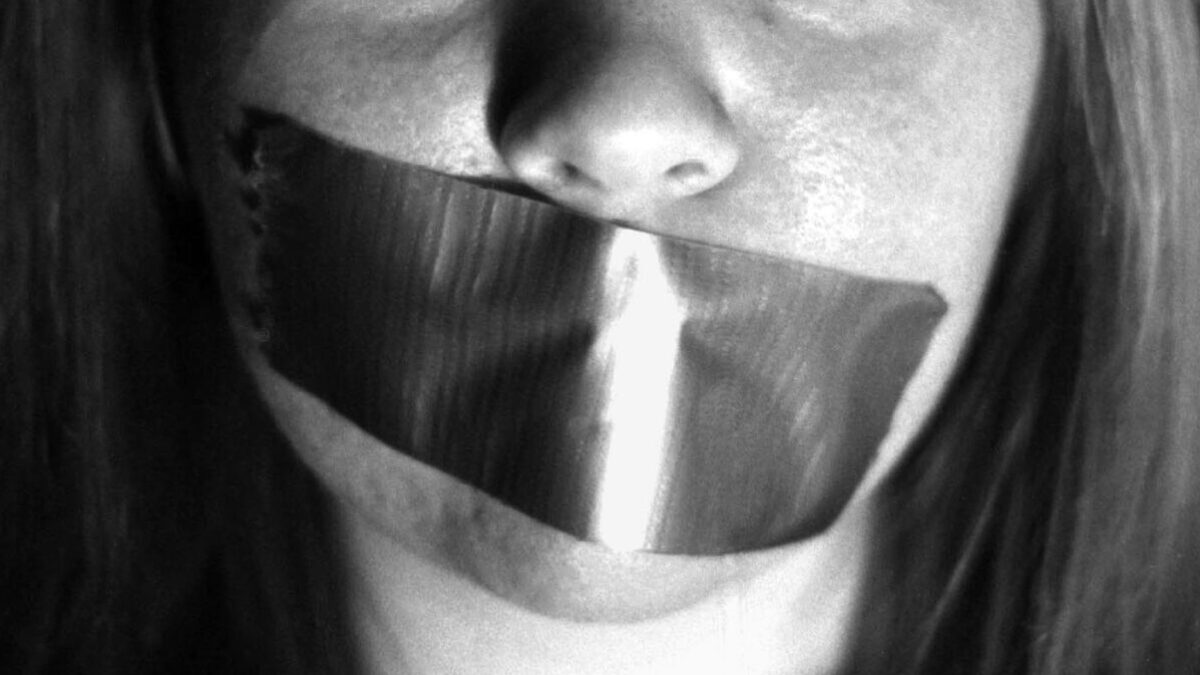Newly elected House Republicans have every political reason to hold investigative hearings into government abuse of power during Covid. While these hearings should have happened long ago, they will no doubt vindicate many Americans who suffered under the capricious reign of public health officials. Central to this investigation will be an inquiry into government attempts to manipulate public opinion.
We already know that officials misrepresented opinion as fact and covertly suppressed contrary information. The pronouncements of bureaucrats, who cared more for their own celebrity and power than the truth, went largely unchallenged. This represents a failure of constitutional guarantees to free speech — a failure Republicans will be happy to broadcast as yet more evidence of an out-of-control bureaucracy.
It’s tempting to think a tyrannical bureaucracy is to blame for our embarrassing foray into censorship. But if we accept this explanation, assign blame, and move on, we ignore a cultural rot that is far more dangerous than any government overreach. It is ordinary Americans, not bureaucrats, who are most to blame for censorship, because citizens are the ultimate defense against the suppression of speech, not the government.
Institutional vs. Cultural Free Speech
Not all defenses of liberty are created equal. There are institutional ones, such as our First Amendment right against government restriction of speech. But there are also cultural protections in the form of shared beliefs. Broad agreement that we will have each others’ backs should anyone try to shut us up instills individual confidence to speak up against encroaching tyranny. As Evelyn Hall summarized Voltaire on the matter, “I disapprove of what you say, but I will defend to the death your right to say it.”
A culture of free speech is a kind of public good. It attacks nascent tyranny by spreading information. Since only controversial speech needs defending, however, such exercise of free speech often comes with notoriety. As with every public service, free speech comes at private expense. Ideally, citizens will give of themselves through unpopular speech because they love their country.
As a precondition for self-sacrificing speech, rational patriots expect something in return. They need to know that enough citizens believe in the value of controversial speech, even if a particular opinion is wrong. If this is not the case, the social cost of speaking up or supporting those who do can be increased by tyrants until even the brave remain silent. No institutional protections, however well-constructed, can induce sacrificial speech when the social value of such speech is not adequately appreciated.
Free Speech Implications from Covid
During Covid, too many Americans stood idly by in the face of censorship. While some of the suppression came in the form of social media meddling by officials, most of it was done by amateurs — citizen busybodies who shamed skeptics until they stopped asking questions. Most Americans didn’t protest either one. This failure of the public to defend against censorship is more dangerous than the censorship itself because it reveals there is no longer broad agreement that nobody may shut up Americans. This is a culture of free speech in retreat, which means our principal defense against tyranny is waning.
Our political environment is changing rapidly as opportunists learn that they, too, can shut down their detractors. For example, Democrats didn’t have to answer the painfully obvious questions about John Fetterman’s mental fitness as he ran for U.S. Senate, because they knew anyone who wanted to ask such questions would fear being branded a bigot. Similarly, the Maricopa County Elections Department doesn’t have to answer for its gross incompetence, because anyone critical of election officials is dismissed as an “election denier.” Shame and deflection aren’t new tactics in American politics, but Covid revealed that such measures are both costless and effective against a broad swath of Americans.
Repairing Free Speech
The shame campaigns are working better than ever because Americans are no longer confident they’ll be backed up when speaking their conscience. Why would people do the costly public service of speaking up when the public won’t even secure their right to speak? We can’t expect rational patriots to speak up again until the record is set straight. The public must make clear that it will defend controversial ideas on principle. That’s what this cultural moment must be about if we are to save free speech.
Congressional hearings are well and good — the government censors and their accomplices should be exposed and held to account. But it’s much more important that those private citizens who spoke up about censorship reprimand those who didn’t but knew they should have. This is more important than even institutional reform. We must have unpleasant conversations with friends and family who didn’t protest when the government and its flunkies came for free speech.
“Bob, remember when our co-workers shunned me for questioning the usefulness of cloth masks? You knew they were trying to shut me up. But you didn’t say anything. Can I count on you next time?”
If this spell of cowardice is dealt with, Americans can still believe their fellow citizens care about free speech. But if we let free speech desertion slide, that belief will fade, and with it our free society. Whatever our institutions say about free speech, we’ll have citizens who know better. As in other cultures that don’t value free speech, we’ll believe that the nail who sticks out gets hammered down.









